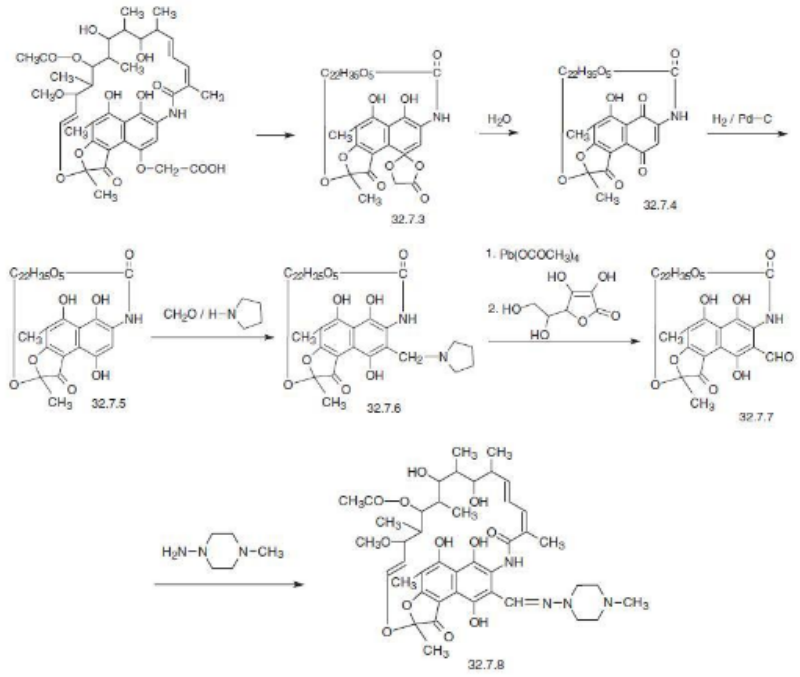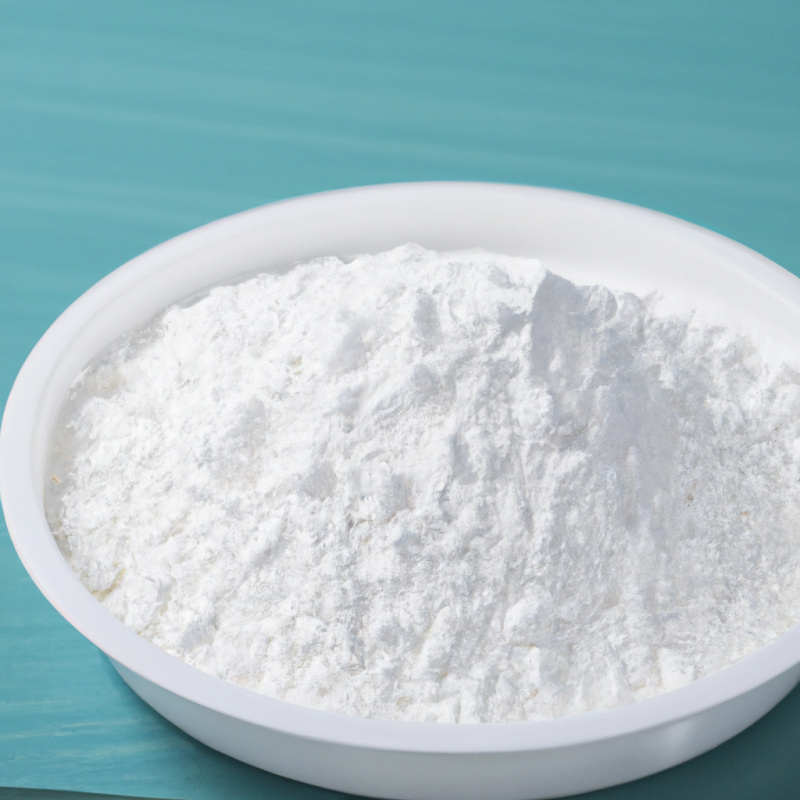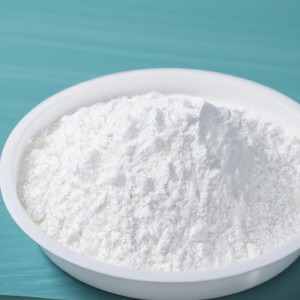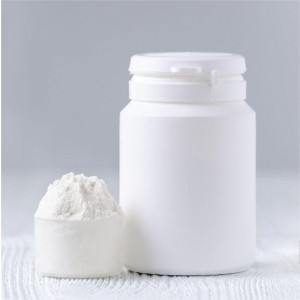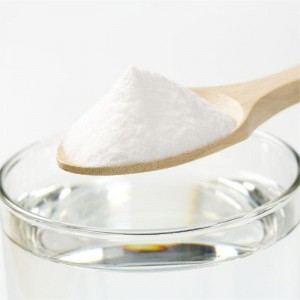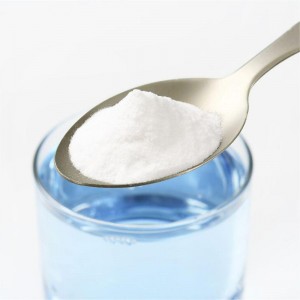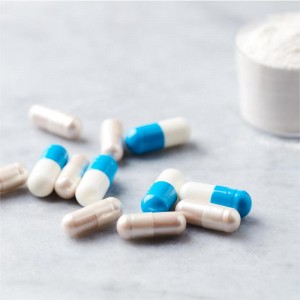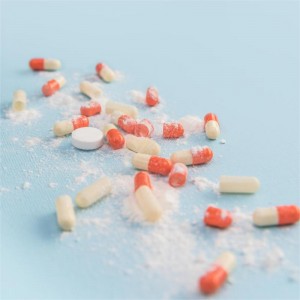Rifampicin Cas number:13292-46-1 Molecular Formula: C43H58N4O12
| Melting Point | 183 ° |
| Density | 1.1782(rough estimate) |
| storage temp | 2-8°C |
| solubility | chloroform: soluble50mg/mL, clear |
| optical activity | N/A |
| Appearance | faint red to very dark red |
| Purity | ≥99% |
Rifampicin is a semisynthetic derivative of rifamicin B, a macrolactam antibiotic and one of more than five antibiotics from a mixture of rifamicins A, B, C, D, and E, which is called a rifamicin complex, which is produced by actinomycetes Streptomyces mediteranei (Nocardia mediteranei). It was introduced into medical practice in 1968. Synthesis of rifampicin begins with an aqueous solution of rifamicin, which under the reaction conditions is oxidized to a new derivative of rifamicin S (32.7.4), with the intermediate formation of rifamicin O (32.7.3). Reducing the quinone structure of this product with hydrogen using a palladium on carbon catalyst gives rifamicin SV (32.7.5). The resulting product undergoes aminomethylation by a mixture of formaldehyde and pyrrolidine, giving 3-pyrrolidinomethylrifamicin SV (32.7.6). Oxidizing the resulting product with lead tetracetate to an enamine and subsequent hydrolysis with an aqueous solution of ascorbic acid gives 3-formylrifamicin SV (32.7.7). Reacting this with 1-amino-4-methylpiperazine gives the desired rifampicin (32.7.8).
Rifampin is used as an antibiotic. It is a semisynthetic derivative of rifamycin B, a macrocyclic antibiotic produced by the mold Streptomyces mediterranei. Rifampin is used for the treatment of tuberculosis, brucellosis, Staphlococcus aureus, and other infectious diseases.
